Among my charming neuroses is a powerful fear of death. I’m worried I’ll die suddenly; I’m worried I’ll die slowly. I’m paralyzed by fear of the afterlife; I’m paralyzed by fear of nonexistence. The curse of humanity is self-awareness, is knowing that the world existed before us and that things will continue without us, and I truly resent having to be aware of my own mortality and the comical fragility of my life, which could end after eating one bad mushroom or slipping in the shower.
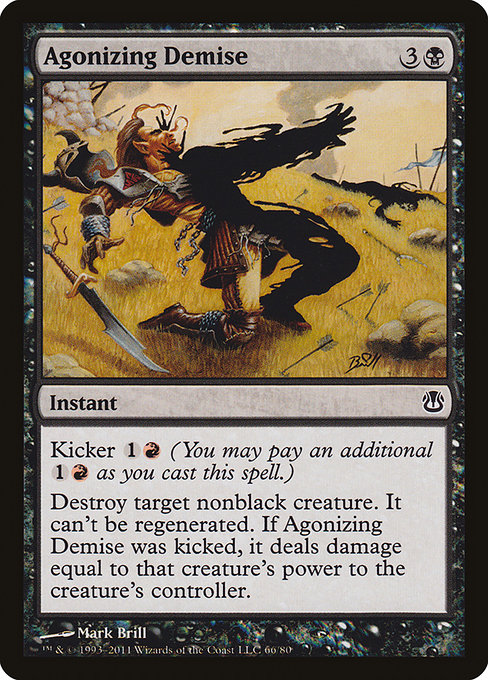
One of the reasons I love board and video games is that they help me process this fear of dying. I’ve said improvised goodbyes to RPG characters in real time, ground my way through scores of deaths in various roguelikes, and spent more time hanging out in digital catacombs than a Sisters of Mercy fan. There’s a reasonable chance that, when whatever takes me out comes to usher me into the dark, the last image that will flicker across my DMT-addled brain will be “YOU DIED” in the Dark Souls font. Through games, we can microdose death. In games, you can reroll or respawn or inhabit a different character in a kind of tabletop reincarnation–death only lasts as long as it takes to load or to fill out a new stat sheet. When I play a warlock or a necromancer, I go from fearing death to celebrating it–embracing it as a source of power and connection.
Halloween may have lost the “hallow” aspect somewhere in the last four hundred years, but it’s still a celebration of the dead and of death. Every twelve-foot Home Depot skeleton is a memento mori, every pair of plastic vampire fangs a reminder of what happens if you don’t bury your dead deep enough, every sweet treat a quick burst of pleasure dwarfed by the endless sleep that awaits us all.The signifiers may have lost their edge, but if you dig into the folklore that surrounds even Halloween’s most benign traditions, you’ll find nothing but bones.

It’s the same in Magic. There’s an intrinsic violence to the language of Magic, from spells like Murder and Snuff Out and Eviscerate to the basics of the game–we’re not battling just for resources, but to maintain a hold on our life force. You don’t “dispel” or “banish” creatures: you kill them and put them in the graveyard. The lingua franca among Magic players is a melange of violent tropes and signifiers, of conquest and colonization.
There’s abstract violence in Magic–Dark Banishing or Remove Soul stealing away life metaphysically–and more concrete violence, as in Stab Wound or Defenestrate. Green’s violence is more savage than sadistic, and Red’s more inferno-based than infernal, but even White and Blue can murder, just more in the guise of “justice” or “turning you into a frog on a chaotic battlefield.”
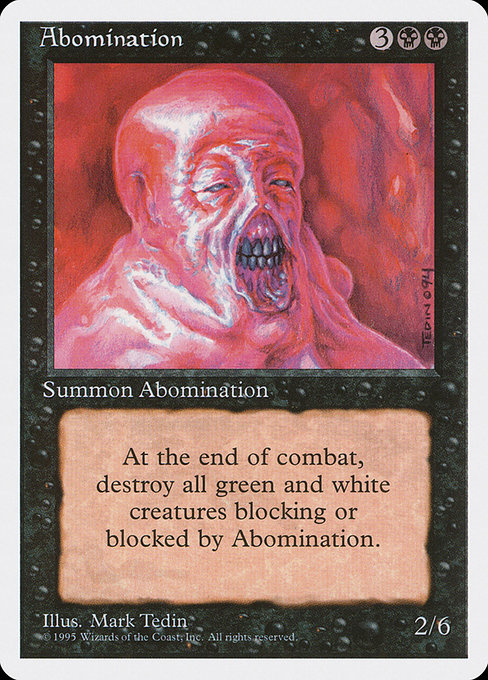
It’s difficult to imagine a setting for Magic that isn’t in some way violent–even the lightest worlds, like Unstable’s Bablovia or Unfinity’s Myra’s Marvels, can result in decapitations or grievous injury and even nominally civilized planes like Ravnica and Innistrad have entire economies built around murder for hire and body disposal. Magic is a game of combat, but since its earliest days, it’s also been a game of horror, from the body horror of Abomination to the horrors of incarceration in a Prison Term.
In any competitive game, there’s horror–the horror of losing a clutch match to land out of prize contention, the horror of having your $1,800 deck lifted from your backpack during a moment of inattention, the horror of opening a pack with a grade-A bomb not in your colors in a format with minimal fixing. Magic is a game that rewards personal investment and empowerment, and so it’s a game where the stakes can feel very high at times. To lose is a kind of horror–hence the popularity of differently-competitive formats like Commander–and to lose in your least favorite way is, in some small way, getting dealt a bad death by the Grim Reaper. In this season of death, I thought it was worthwhile to look through the ways you can lose a game of Magic and see how they map to metaphysics–why do we get so frustrated when we lose to [X ARCHETYPE]? Why do we resent seeing certain cards so deeply–after all, they’re just game pieces.
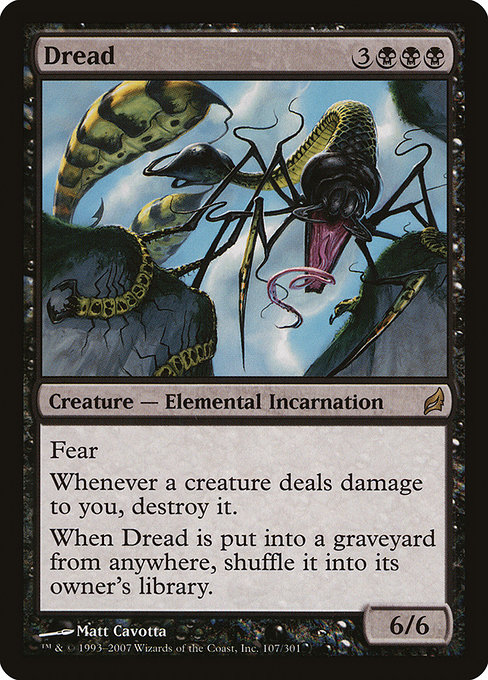
For this discussion, I’m not considering single-card win conditions like Approach of the Second Sun or Helix Pinnacle. If you let the Revel in Riches play amass ten Treasures, that’s on you. That said, I’m sure everyone has their own least favorite instant-win condition, and it reveals something about their character. I’ve given and received Tarot readings many times in the past–as metaphysics, it’s nonsense, but as a meditative exercise, it’s useful–and I know how powerful an array of cards can be at revealing small truths about your personality and phobias.
Personally, Burn is the least scary way to lose a game of Magic–it can be frustrating, but it’s fast, and it feels very abstract as you cross off “20” and write “14,” cross off “14” and write “11,” and so on. Being dog-piled by a squad of Goblins would not be fragrant or fun, but in the context of Magic, it’s a quick death, at least. Getting hit with a Lightning Bolt seven times would no doubt be agonizing; the Magic equivalent of that scenario is an opportunity to grab a sandwich or a smoke after a nine-minute match.
There are tough moments in Burn matches, to be sure–facing an Eidolon of the Great Revel when you’re at five and knowing, just knowing that when you Fatal Push it, they’ll Bolt you for the last three is excruciating–but in general, it’s like being crushed by an avalanche. I can imagine someone who fears that, though–someone terrified of dying in a nuclear blast, of being the target of an airstrike, of being erased so suddenly and so completely that you barely even leave behind proof. The easiest way to get over your fear of Burn is to rise above it (Leyline of Sanctity).
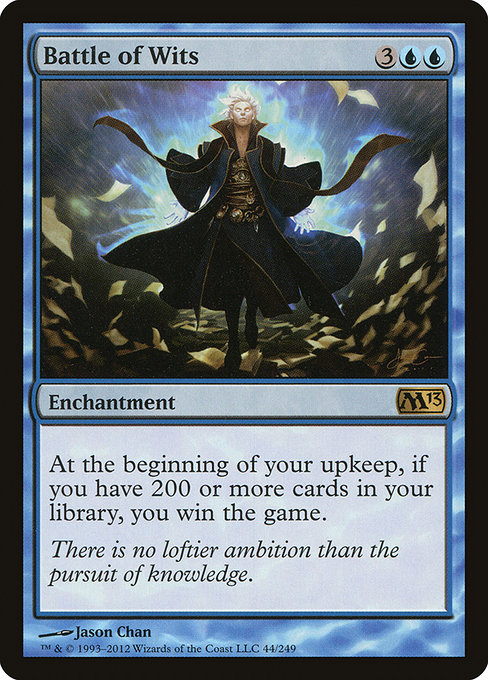
Mill is a bit different. The flavor of milling is being driven insane, as in the flavor text of Millstone, which set the trend both for the mechanic and the nomenclature. Mind Funeral, Traumatize, Maddening Cacophony–in the abstract, milling represents a psychic attack so traumatizing that it takes away your future. It takes away your chance to find answers for your predicament. At its worst, mill feels both invalidating and uninteractive as the mill player hits a lucky streak of your answers, leaving you staring at a pair of Ruin Crabs. At its worst, being milled feels like having your life siphoned away by a bureaucracy; at its absolute best, it feels like you’re playing against Burn in a bad costume. People who fear Mill fear invalidation–their phobia is the fear of losing control, of the standard methods of interaction disappearing. The easiest way to beat mill is to put your faith in a reality-bending elder entity (Kozilek, Butcher of Truth).
Poison would probably rank number one for a lot of people, particularly folks who played a lot of Modern a few years ago. Ironically, the introduction of Toxic has made Poison feel less threatening, in the same way that the consistently degenerating sequel chain has made Leatherface or Michael Myers less threatening. As it has been played historically, though, Poison meant that letting one innocuous 1/1 Poison creature through led to a flurry of pump spells and instant death. Those who fear Poison fear sickness and plague–they fear how quickly a fever and cough can evolve into a mortal illness, how fragile their vitality is when compared to the mighty virus. The only way to get beyond disease is to trust those who can inoculate you against them (Melira, the Living Cure).
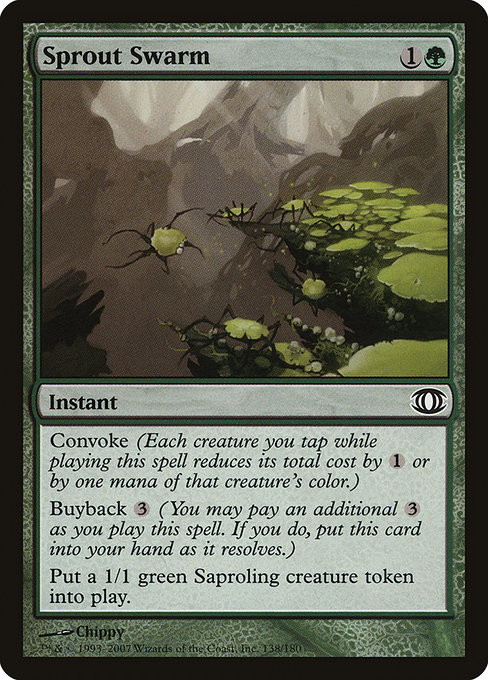
Hordes of tokens are, as far as I’m concerned, the scariest way to die in Magic. I played a lot of Innistrad Standard, and being haunted to death by Lingering Souls or mauled by Huntmaster’s Wolf tokens has stuck with me. Even being nibbled to death by a horde of Squirrels seems horrific to me, and I don’t think I’ve built a Modern deck in the last four years without reserving a couple of sideboard slots for Plague Engineer. Bitterblossom air squads, Avenger of Zendikar-boosted Plant tokens, Horrors from Phyrexian Processor–any mass army both scares and bores me. I do have a soft spot for Zombie decks, though, particularly ones that rely on armies of ghouls.
For me, Halloween is inextricable from zombie fiction–my wife and I try to hit the gamut of creepy movies during the Halloween season, from folk horror to exorcisms to aliens, but it’s the zombie movie that always caps the season, whether it’s Evil Dead, Return of the Living Dead, or One Cut of the Dead. I used to be terrified of zombies as a child, but I also came of age during the Zombie Boom of the aughts, so I had to get over that fear/fascination quickly. I fear a loss of identity; I fear being consumed. My fear of tokens is the fear of the frustrated iconoclast, someone who sees the apparent happiness of the masses and wonders why happiness and anonymity seem to go hand in hand. I’ve moved beyond my fear by embracing it–teaming up with Josu Vess and Jadar to swarm the board with infinite 2/2’s and the inevitability of Endless Ranks of the Dead.
I pretend I’m not superstitious, but I don’t whistle near graveyards or backstage. I claim that I don’t believe in ghosts, but I didn’t take the bottles off the trees when I moved in. It doesn’t hurt to be safe, particularly around the Halloween season. I know my death is coming one day, and it may come in the guise of a hilarious accident or a devastating disease or a random act of violence. Statistically, it’s likely to come at the hands of a coronary instead of a skeleton, much as most games of Magic end with someone going to zero life, rather than zero cards. Until then, it’s best to weigh the options, to consider how things might end, and to figure out what, exactly, we’re so scared of.
Rob Bockman (he/him) is a native of South Carolina who has been playing Magic: the Gathering since Tempest block. A writer of fiction and stage plays, he loves the emergent comedy of Magic and the drama of high-level play. He’s been a Golgari player since before that had a name and is never happier than when he’s able to say “Overgrown Tomb into Thoughtseize,” no matter the format.

